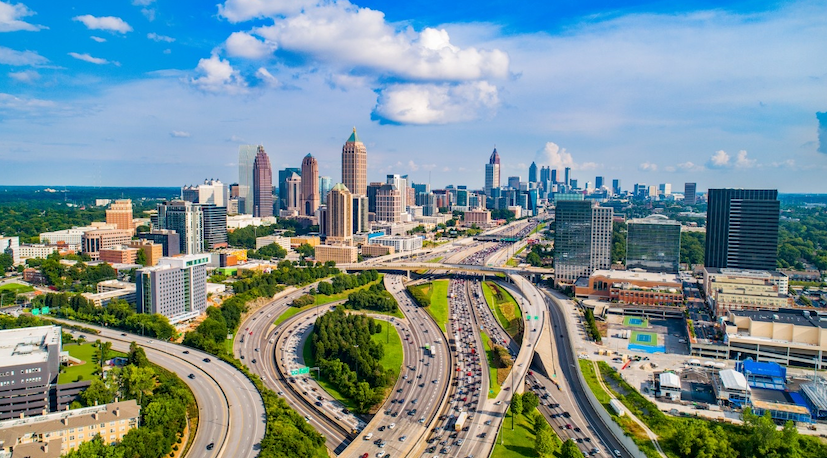Why Atlanta?
People move to Atlanta for various reasons, from its thriving economy to its vibrant culture and livability. Here are some of the top reasons why Atlanta is a popular destination:
1. Strong Job Market
• Economic Hub: Atlanta is home to major corporations, including Coca-Cola, Delta Air Lines, Home Depot, and UPS.
• Growing Industries: Opportunities abound in tech, film and television production (thanks to its nickname “Hollywood of the South”), finance, and logistics.
• Entrepreneurial Spirit: The city has a strong startup culture and a supportive ecosystem for small businesses.
2. Affordable Cost of Living
• Compared to other major cities like New York, Los Angeles, or Chicago, Atlanta offers a more affordable cost of living.
• The housing market includes options for all budgets, from luxury homes to more modest single-family residences.
3. Quality Education
• Top-Ranked Schools: Atlanta has excellent public and private schools.
• Higher Education: It’s home to renowned institutions like Georgia Tech, Emory University, Spelman College, and Morehouse College.
4. Warm Climate
• Mild winters and hot summers make Atlanta appealing for those looking to escape harsh northern climates.
• The long growing season is a plus for gardeners and outdoor enthusiasts.
5. Rich Culture and Entertainment
• Diverse Food Scene: Atlanta's culinary scene is top-notch, from Southern comfort food to international cuisine.
• Music and Arts: Known for its hip-hop scene, Atlanta also offers theaters, galleries, and live music venues.
• Sports Teams: Home to teams like the Atlanta Falcons (ATL UTD),Atlanta Braves (MLB), Falcons (NFL), and Hawks (NBA), plus major college football events.
6. Green Spaces and Outdoor Activities
• The city has parks, including Piedmont Park and the Atlanta BeltLine, a popular multi-use trail.
• Day trips to the North Georgia mountains or Lake Lanier offer quick escapes into nature.
7. Diverse and Inclusive Communities
• Atlanta is a melting pot of cultures and one of the most LGBTQ+-friendly cities in the Southeast.
• The city has a strong African American community with a rich history in civil rights and culture.
8. Convenient Transportation Hub
• Hartsfield-Jackson Atlanta International Airport: One of the busiest airports in the world, providing access to domestic and international destinations.
• Highway Access: Major interstates (I-75, I-85, and I-20) connect Atlanta to the rest of the Southeast.
9. Booming Film Industry
• Atlanta has become a major hub for film and television production, attracting creatives and those in related industries.
• Landmarks and neighborhoods often double as backdrops for Hollywood blockbusters and hit TV shows.
10. Southern Hospitality
• People are drawn to Atlanta for its welcoming and friendly atmosphere. Neighbors look out for one another and have a genuine sense of community.



